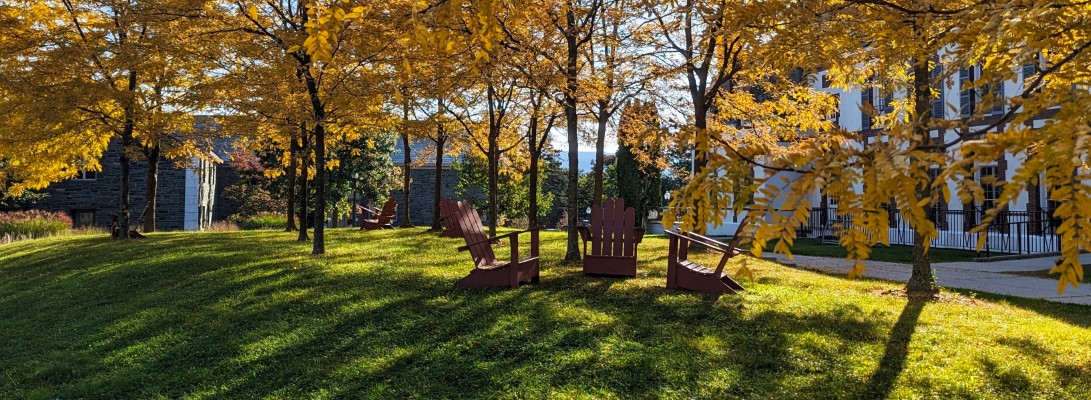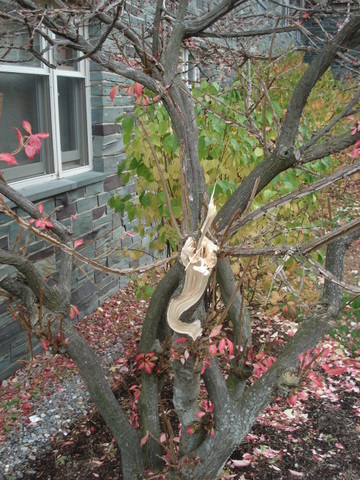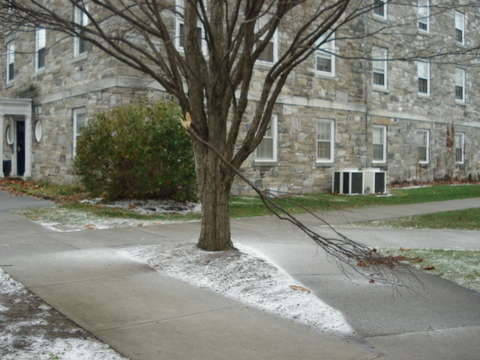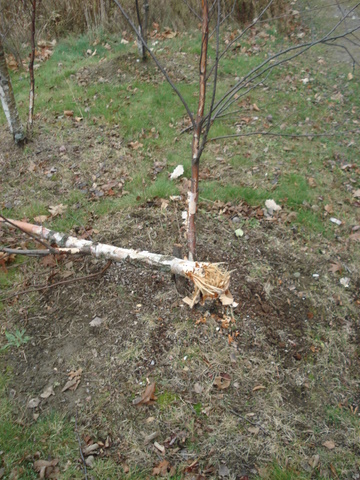7-18-6.
Not a fertilizer label, but an accounting of the fall semester at Middlebury. Seven-the number of weekends in a row we’ve seen vandalism against trees. 18-the total number of trees affected. And 6-trees killed outright.
We come into work Monday morning, and, in addition to picking up the inevitable and ubiquitous litter and detritus from the weekend, now survey the damage as well. I was not writing of it, hoping to sweep our problem under the rug, hoping that these acts were random, solitary, maybe just an aberrant mutation on an otherwise pristine campus, a passing social deviation that would go away on its own.
And I’m preaching to the choir, here, after all. I’ve discussed vandalism in the past on Middland, and am quite frankly a little sick of telling the tale. I’ve reported this problem to my superiors, and they’ve approached community council. And I was going to get on with life, and write posts on annuals, the Sustainable Sites Initiative, and put some more work into Turf Battle.
Last night, Dean Shirley Collado wrote a piece on One Dean’s View called Plates and Privilege. We’ve all heard about the missing plate problem, thanks to Aunt Des and the great communications department. But Shirley’s take is different, and had me thinking all night (well, until 9:30 or so, I can’t seem to stay up like I used to) about privilege. Let’s let her say it best:
I would like to call students to action to think more critically about the human face behind the dish problem. Think about what it says about us as a community when these small acts of thoughtlessness create a collective problem that impacts all of us in a negative way. This thoughtlessness speaks volumes about what kind of people our students are going to be when they leave this institution.
So, I thought, our tree vandalism is a problem of privilege, like the many beer cans scattered around on a Monday. It’s easy to take trees for granted, and yes, sometimes they do get in the way (I’ve wondered on one or two broken branches if the offender was tall-sick of running into the same branch every day). But then I cleaned up some of the damage today, and came to a different conclusion.
We have a problem of violence.
Pictures won’t even do it justice, and even my words won’t. In the service building? Come by my office, I’ve saved a couple pieces of broken limbs. But let me try to explain what’s going on here.
The offender (I hesitate to use the word ‘student’, as surely this individual isn’t really learning anything here) is breaking limbs off of trees. Serious limbs. I climb trees, and, while I still resemble the pasty geek I was in high school, I’ve jumped a couple of weight classes. Limbs broken would hold me and my chainsaw with room to spare. Limbs that are not just snapping off, but need to be bent, wrenched, moved back and forth hoping to break 3” of bark and wood to separate it from the tree. Entire small trunks of immature trees not only bent to the ground, but shaken, trampled, twisted and torn, sometimes breaking completely, sometimes left hanging , or lying in ground, waiting for a chalk outline to surround it. This is an act of rage, of violence, well beyond wanton destruction of property, senseless passing violence against an animate object incapable of screaming or defending itself.
A 3” limb, counting rings, is probably very well older than the person breaking it off.
Monday will come again, and again we’ll go out, willingly pick up the remnants of a privileged life, but hope and pray that no more violence has befallen our silent friends.




I agree, It is an honor and privilege to work and live in such a beautiful, diverse, tree-filled campus. However, these acts against the forest and fauna have shaken my faith in the local humanity.